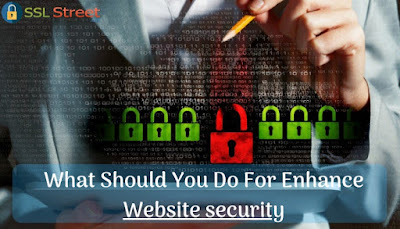Some of your site's security might be secured by your hosting company, however, you ought to dependably check what they do and don't cover because at the end of the day you are responsible for your website security. Indeed, even the littlest of SMEs and smaller micro-businesses require security. It's not generally the case that the individual or bot that is hacking you is after your business. You could be the weak link in a chain that leads the genuine objective.
1. When Adding Security:
This is simply the primary thing you have to ask yourself while adding security to your site. What is the most business-basic perspective and what can you practically bear to ensure it. As far as who, there are two main groups you have to consider ensuring.
3. Web Application Firewalls (WAF):
WAFs (Web Application Firewalls) monitor the activity before it achieves web application, investigating requests to filter harmful traffic or traffic patterns. WAFs are a typical security control used by organizations to ensure against impersonations, zero-day threats, and other known vulnerabilities and attackers.
1. When Adding Security:
This is simply the primary thing you have to ask yourself while adding security to your site. What is the most business-basic perspective and what can you practically bear to ensure it. As far as who, there are two main groups you have to consider ensuring.
- Your Visitor's: There have been precedents in the past of sites having malware appended to their pages without the business staying alert. This has brought about malware being downloaded onto the visitors PC taking everything from passwords to individual data.
- Information Protection: Data assurance is crucial to any business. In addition to the fact that you are at risk for any misfortune or abuse of individual information, there's additionally the issue of business basic information.
2. SSL Certificates:
SSL is a protocol that creates secure connections between a server and the browser. SSL uses a cryptographic system to encrypt information being passed between the client and server. Generally, you can tell if a website has a valid SSL Certificate as the URL begins with HTTPS rather than HTTP and contains the padlock symbol.- When SSL Needed?
- Shared Versus Private SSL?
3. Web Application Firewalls (WAF):
WAFs (Web Application Firewalls) monitor the activity before it achieves web application, investigating requests to filter harmful traffic or traffic patterns. WAFs are a typical security control used by organizations to ensure against impersonations, zero-day threats, and other known vulnerabilities and attackers.

No comments:
Post a Comment